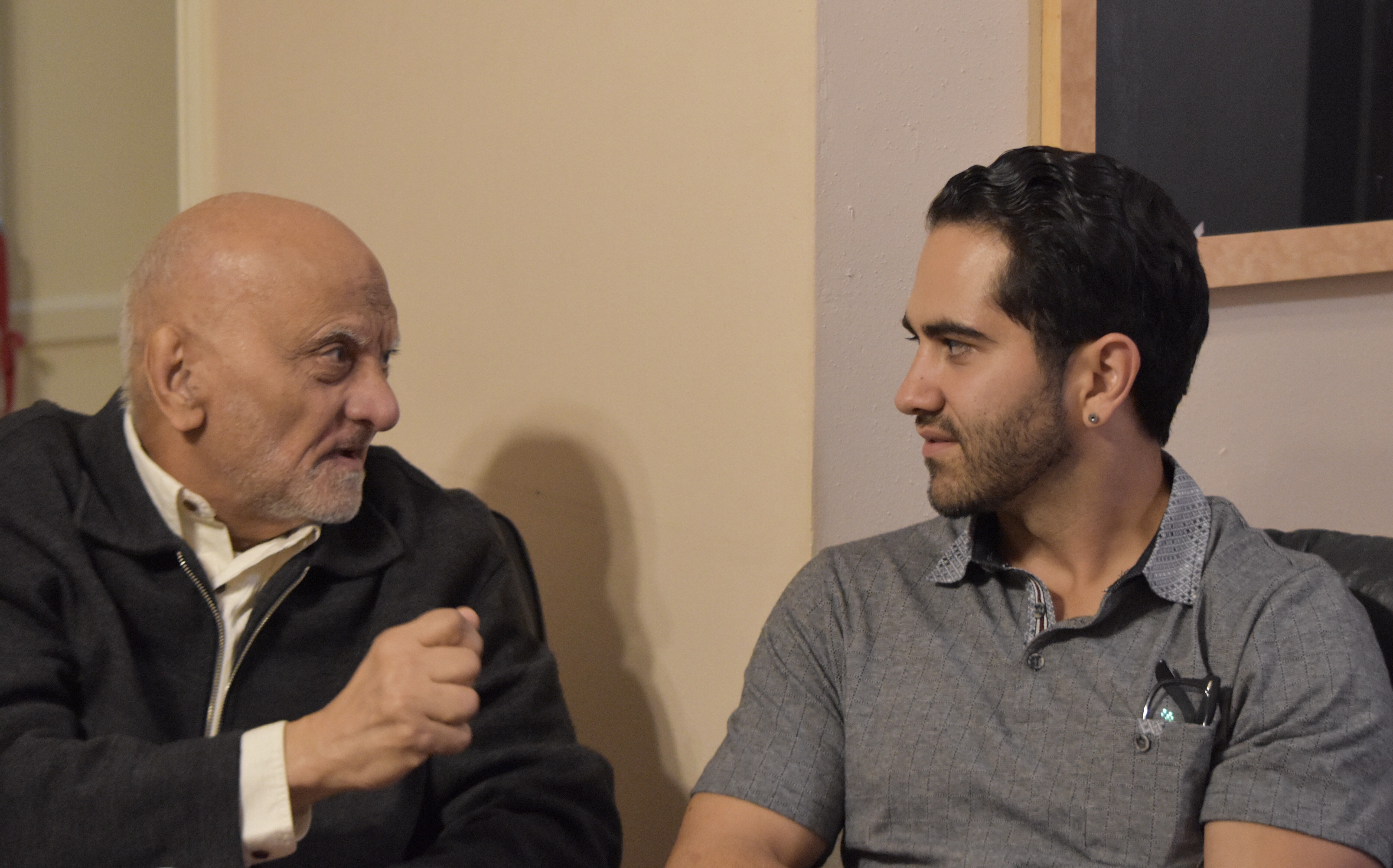Unhelpful Things to Say to Someone With Diabetes
Managing diabetes is a complex and often challenging journey, requiring not only medical attention but also emotional resilience. For those who are not living with diabetes, understanding the nuances of the condition can be difficult. However, when engaging in conversations with someone managing diabetes, it is crucial to approach the topic with sensitivity and empathy. This article explores 12 things you should never say to someone with diabetes, with kindness in mind. By understanding these conversational pitfalls, we can better support our loved ones and foster a more compassionate dialogue surrounding their health and well-being.
1. Are You Sure You Can Eat That

Questioning someone's food choices can feel judgmental and intrusive, especially for those managing diabetes. People with diabetes often work closely with healthcare providers to develop personalized meal plans that accommodate their needs. Assuming they are unaware of what they can or cannot eat undermines their autonomy and expertise in managing their condition. Instead of questioning their choices, offer support by asking if there’s anything specific they might need when dining together. This approach respects their knowledge and shows that you trust their ability to manage their dietary needs effectively.
2. You Don't Look Diabetic

This statement can be both confusing and dismissive. Diabetes does not have a specific "look," and making assumptions based on appearance can perpetuate harmful stereotypes. Both Type 1 and Type 2 diabetes affect people of all ages, sizes, and ethnic backgrounds. By suggesting that someone doesn't fit the mold of what you believe a person with diabetes should look like, you minimize their experience and the challenges they face. Instead, focus on listening to their experiences and understanding diabetes as a multifaceted condition that goes beyond physical appearance.
3. My Aunt Had Diabetes and She...

Sharing anecdotes about other people with diabetes can come across as dismissive or irrelevant. Each person's experience with diabetes is unique, shaped by individual health factors, lifestyle choices, and emotional responses. While sharing stories might seem like a way to connect, it often shifts the focus away from the person you're speaking with. Instead, engage in conversations that center on their specific experiences and challenges. This approach validates their journey and demonstrates a genuine interest in understanding how diabetes impacts their life.
4. At Least It's Not That Serious

Downplaying the seriousness of diabetes can be incredibly hurtful. While diabetes is manageable, it is a lifelong condition that requires constant vigilance and can lead to severe complications if not properly managed. By minimizing the condition, you inadvertently dismiss the daily efforts and emotional toll involved in managing diabetes. A more supportive approach is to acknowledge the challenges they face and express admiration for their strength and perseverance. This kind of validation can be empowering and affirming for someone who is navigating the complexities of diabetes.
5. You Should Try This Miracle Cure

Recommending unverified treatments or so-called "miracle cures" can be frustrating and potentially dangerous. People with diabetes often face a barrage of unsolicited advice about alternative therapies that promise quick fixes. It's essential to recognize that diabetes management is highly individualized and should be guided by healthcare professionals. Instead of suggesting miracle cures, offer support by asking how you can assist in their current management plan. This reinforces trust in their medical team and respects their informed decisions about their health.
6. But You’re Not Overweight

Linking diabetes solely to weight perpetuates misconceptions about the condition. While obesity is a risk factor for Type 2 diabetes, it is not the sole cause, and many individuals with diabetes do not fit this stereotype. Type 1 diabetes, in particular, is an autoimmune condition unrelated to lifestyle factors. By focusing on weight, you overlook the complex interplay of genetics, environment, and other factors that contribute to diabetes. A more empathetic response is to ask about their experiences and challenges, showing that you understand diabetes as a multifaceted condition.
7. Can't You Just Take Insulin

Assuming that insulin is a simple solution undermines the complexity of diabetes management. While insulin is a critical component for many, managing diabetes involves balancing medication, diet, exercise, and monitoring blood sugar levels. Each person's treatment plan is tailored to their unique needs, and insulin is not a cure-all. Instead of simplifying their regimen, express curiosity about their management strategies and offer support in maintaining their routine. This approach acknowledges the intricacies of diabetes care and respects their expertise in managing their health.
8. You Must Have Eaten Too Much Sugar

This misconception oversimplifies the causes of diabetes and places undue blame on the individual. While excessive sugar consumption is unhealthy, it is not the direct cause of diabetes. Type 1 diabetes is an autoimmune condition, and Type 2 diabetes involves a complex interplay of genetic and lifestyle factors. By perpetuating this myth, you contribute to stigma and guilt that individuals with diabetes often face. A more supportive approach is to educate yourself about the condition and engage in conversations that focus on understanding rather than blaming.
9. I Could Never Give Myself Injections

Highlighting your own discomfort with needles can inadvertently diminish the daily challenges faced by those who require insulin injections. For many people with diabetes, administering injections is a necessary and routine part of life. By expressing admiration for their bravery and resilience, you acknowledge the effort and courage required to manage their condition. This approach shifts the focus away from your discomfort and towards a recognition of their strength, fostering a more empathetic and supportive dialogue.
10. Isn't That the Bad Kind

Labeling one type of diabetes as "bad" is misleading and stigmatizing. Both Type 1 and Type 2 diabetes have serious health implications and require careful management. Each type presents its own set of challenges, and neither is inherently "worse" than the other. By avoiding value judgments, you demonstrate respect for the complexities of both types and the individuals who manage them. Instead, ask questions that show a willingness to learn about their specific type of diabetes and the unique challenges they face, promoting understanding and empathy.
11. You'll Be Fine If You Just Exercise More

While exercise is an important component of diabetes management, it is not a standalone solution. This statement oversimplifies the condition and overlooks the myriad factors that influence blood sugar control. People with diabetes often have comprehensive management plans that include medication, dietary changes, and regular monitoring. By reducing their efforts to a single action, you minimize the complexity of their condition. A more supportive approach is to ask how you can support their existing routine, demonstrating respect for their comprehensive management strategy.
12. You're So Brave

While intended as a compliment, this statement can feel patronizing. People with diabetes are managing a health condition, not embarking on a heroic quest. While acknowledging their resilience is important, it’s equally crucial to treat them as individuals rather than define them by their condition. Instead of focusing solely on their bravery, engage in conversations that recognize their interests, achievements, and experiences outside of diabetes. This holistic approach affirms their identity beyond their condition and fosters a more balanced and respectful dialogue.
Fostering Understanding and Support

Navigating conversations with someone managing diabetes requires sensitivity, empathy, and a willingness to learn. By avoiding these common pitfalls and focusing on understanding, we can create a supportive environment that acknowledges the complexities of diabetes management. Encouraging open dialogue and respecting the experiences of those living with diabetes not only strengthens relationships but also empowers individuals to manage their condition with confidence. As we strive to be more compassionate communicators, we pave the way for a more inclusive and understanding society.